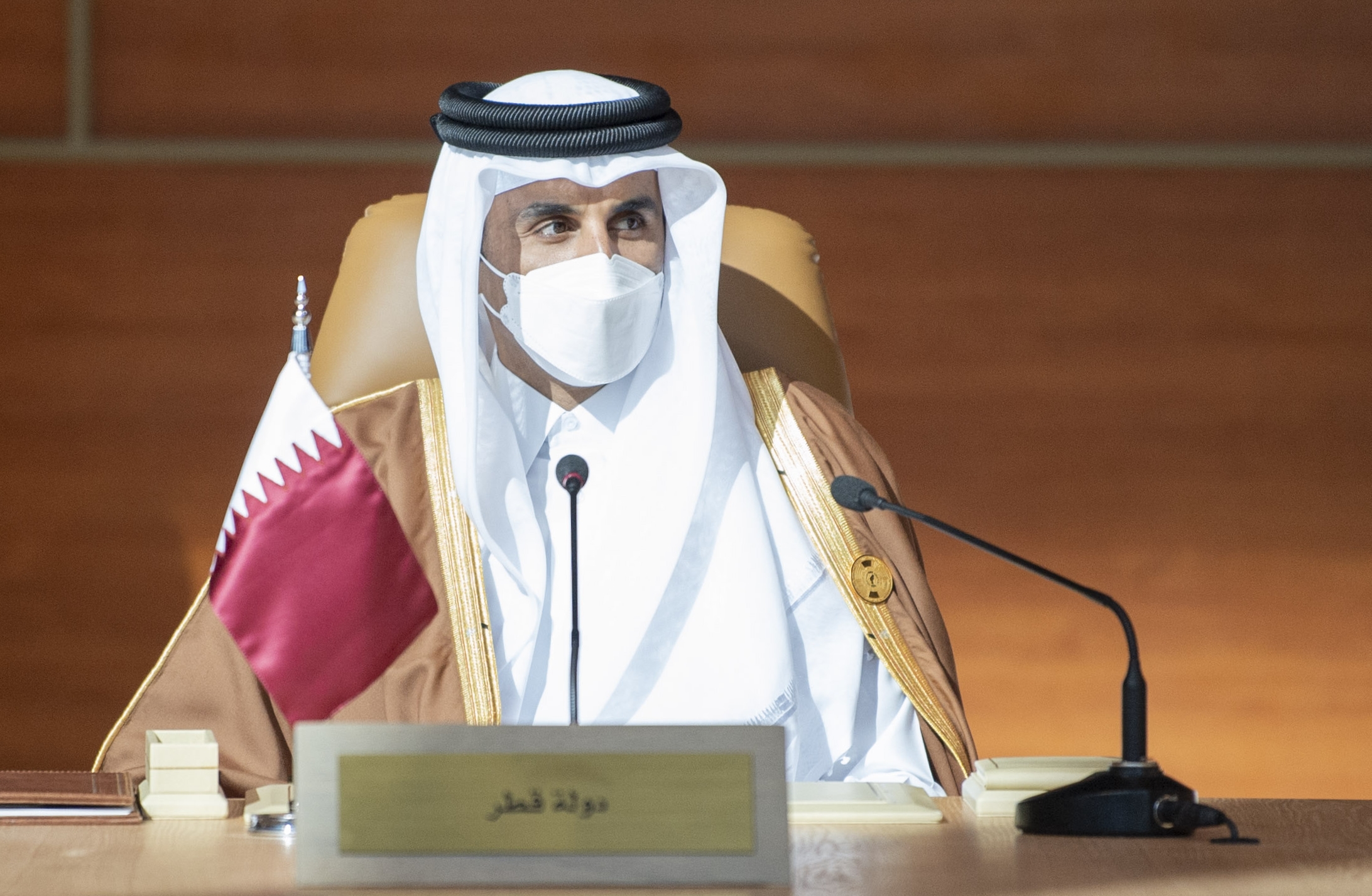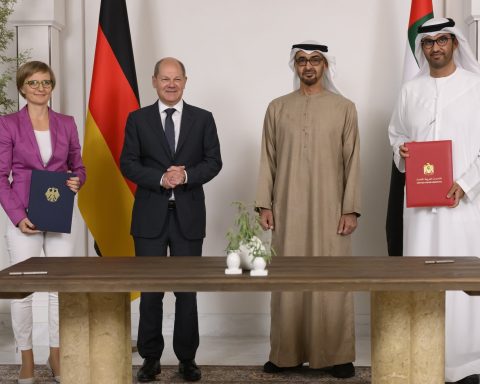MBC Group, the voice of the alliance between Saudi Arabia and the United Arab Emirates (UAE), had announced in Autumn 2019 that it would start to air an Arabic historical drama series about the reign of the Ottoman Empire’s Selim I and the Mamluk Sultanate’s Tuman Bay II, titled “Kingdoms of Fire”. The drama was directed by British director Peter Webber, was filmed in Tunisia, and produced with a budget of $40 million.
Kingdoms of Fire aimed to show the Ottoman era, in the Arab World, as a dark era and intended to decrease the interest of Arab viewers from prominent Turkish series like Diriliş Ertuğrul and Kuruluş Osman. “We are proud to announce the series Kingdoms of Fire, which we hope will start a new phase in Arab drama,” said Emirati producer Yasser Hareb, who is close to the Crown Prince of the Emirate of Abu Dhabi, Mohamed bin Zayed bin Sultan al-Nahyan.
The ambitious drama project of the UAE completely failed and did not achieve any of its goals. Neither Arab people changed their negative or positive opinions about the Ottoman Empire, nor their interest in Turkish dramas decreased. Most Arabic intellectuals criticized MBC’s drama because it distorts historical facts to distort the history of Turks. This meant that $40 million was wasted for nothing.
It seems that the UAE’s rulers did not learn any lessons from this failure and decided to try their luck elsewhere. This time, they financed a Hollywood movie to show Qatar as a supporter of terrorist organizations.
A Hollywood film called “The Misfits” tells the story of a savvy thief who escapes from a high-security US prison and goes on to steal millions from the world’s most secure facilities. The film, funded by the UAE, refers to Qatar as ‘Jazeeristan’, accuses its citizens of supporting terrorist organizations, and portrays Egyptian Muslim scholar Sheikh Yusuf al-Qaradawi as “the leader of the Muslim Brotherhood and the sponsor of global terrorism,” while Abu Dhabi’s mercenaries are depicted as heroes.
Sheikh Yusuf al-Qaradawi was welcomed in the UAE before the Arab Spring, and presented with the Islamic Personality of the Year Award, which carries a prize of one million dirhams. UAE Vice President, Prime Minister and Ruler of Dubai, Sheikh Mohammed bin Rashid al-Maktoum, who was Crown Prince of Dubai and Minister of Defence at the time, told Al-Qaradawi: “We learn from your esteemed Islamic opinions which moderate our Islamic jurisprudence. We apply your valuable Islamic opinion and take it into consideration in all fields of activity.” There are pictures showing al-Maktoum kissing al-Qaradawi’s head at the award ceremony in December 2000. Sheikh Abdullah bin Bayyah, chairman of the UAE’s Fatwa Council, was a member of the International Union of Muslim Scholars, which was established by al-Qaradawi until recently. Yusuf al-Qaradawi in the year 2000 is the same in 2021, and his moderate opinions have not changed at all.
The scenario in the movie does not reflect reality. They portray the Qatari state, which hosts the Al Udeid Air Base, the largest American base in the Middle East, as a terrorist state. In addition to this, Qatar has very good relations with the US and deep ties with European countries.
Through the movie, the UAE aims to damage Qatar’s reputation, though it can also harm the image of all members of the Gulf Cooperation Council and their citizens because most people cannot figure out the differences between Qatari, Kuwaiti, Saudi, and Emirati people. In their eyes, all citizens of the Gulf are the same. Furthermore, the movie will probably contribute to the depiction of Muslims as terrorists and subsequently increase islamophobia.
This is not the first time the UAE’s distortion of facts has aimed to harm Qatar’s image around the world, especially in the West. There were many attempts before “The Misfits” such as the aim to prevent Qatar from organizing the 2022 FIFA World Cup through the manipulation of journalists and organizations in Africa to issue public statements or campaign against the hosting of the world’s biggest football tournament. UAE-supported media has held campaigns to boycott the 2022 FIFA World Cup by igniting protests against human rights conditions, working conditions, and labor rights in the host country. However, those campaigns also failed, and Qatar is continuing to complete all its preparations to host one of the biggest sporting events next year. FIFA President Gianni Infantino declared that the World Cup will be held in Qatar with fans thronging the stadiums and suggested that the 2022 edition will be the best-ever World Cup.
Later, a Qatari media group accused that “The Misfits” contained ideas and scenes inciting hatred and tarnishing the reputation of Qatar and several military, media, and medical institutions, and decided to file a criminal case against the makers and financiers of the movie.
Doha can respond in a similar fashion towards Abu Dhabi. Qatar possesses Al Jazeera, the most-watched news channel in the Middle East. Qatar is also a wealthy country like the UAE, which means it can fund more than a movie to damage its reputation, and it does not need to fabricate fake scenarios. There are many real stories reported by the media, such as the UAE-run secret prisons in Yemen.
The UAE neither has a democratic regime nor respects human rights and fundamental freedoms. According to human rights groups, there are secret prisons set up by the UAE across southern Yemen. In these prisons, Emirati army personnel and their Yemeni surrogates intentionally hold thousands of political opponents, opinion-makers, and even civilians, without any charge or presentation to judicial authorities, and practice brutal interrogation techniques on detainees, which include physical and psychological torture. Many stories and scenarios can certainly be inferred from what happened in these prisons.
Alaa al-Siddiq, a prominent dissident Emirati rights activist and critic, died in a car crash near London last month. She was the executive director of a UK-based non-profit organization that advocated for human rights in the Gulf. She advocated for justice and the rights of political prisoners in the UAE and other Arabic countries. Her father, Mohammad al-Siddiq, is a political prisoner who has been held in detention by the Emirati regime since 2013. “He languishes in the notorious prisons of the UAE,” as Saudi activist Abdullah al-Awda has said. The painful life story of Alaa al-Siddiq and her father can inspire the scenario of a movie.













